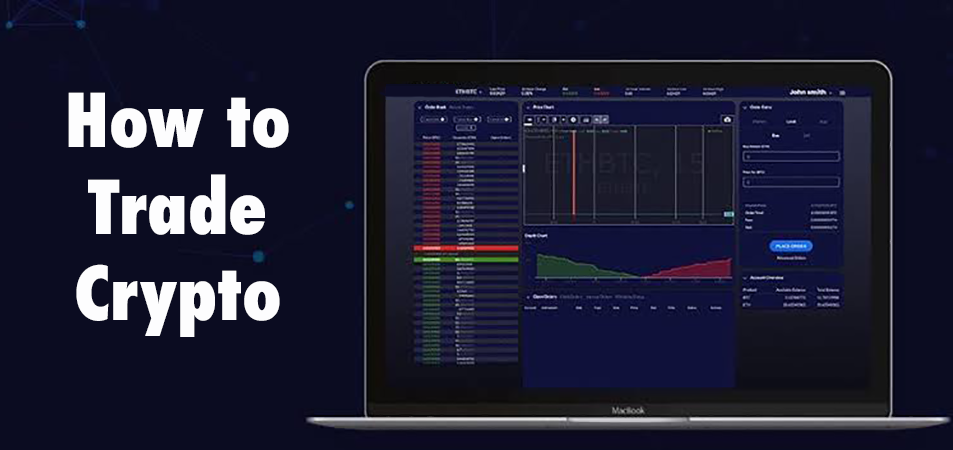Cryptocurrency trading is the act of hypothesizing on cryptocurrency price motions by means of a CFD trading account, or buying and offering the underlying coins via an exchange. CFDs trading are derivatives, which allow you to hypothesize on cryptocurrency rate motions without taking ownership of the underlying coins. You can go long (' buy') if you believe a cryptocurrency will increase in value, or brief (' sell') if you think it will fall.
Your earnings or loss are still determined according to the complete size of your position, so leverage will amplify both earnings and losses. When you buy cryptocurrencies by means of an exchange, you buy the coins themselves. You'll require to develop an exchange account, installed the amount of the possession to open a position, and save the cryptocurrency tokens in your own wallet up until you're all set to sell.
Lots of exchanges also have limitations on just how much you can deposit, while accounts can be extremely pricey to maintain. Cryptocurrency markets are decentralised, which means they are not issued or backed by a central authority such as a federal government. Instead, they run across a network of computers. Nevertheless, cryptocurrencies can be bought and sold by means of exchanges and saved in 'wallets'.
 How to Trade Cryptocurrency! - YouTubeyoutube.com
How to Trade Cryptocurrency! - YouTubeyoutube.com
When a user wants to send cryptocurrency units to another user, they send it to that user's digital wallet. The transaction Home page isn't considered last till it has been validated and contributed to the blockchain through a process called mining. This is also how new cryptocurrency tokens are usually created. A blockchain is a shared digital register of tape-recorded data.
To choose the very best exchange for your needs, it is necessary to totally understand the types of exchanges. The first and most typical type of exchange is the centralized exchange. Popular exchanges that fall into this classification are Coinbase, Binance, Kraken, and Gemini. These exchanges are private business that provide platforms to trade cryptocurrency.
The exchanges noted above all have active trading, high volumes, and liquidity. That stated, centralized exchanges are not in line with the philosophy of Bitcoin. They operate on their own personal servers which creates a vector of attack. If the servers of the business were to be jeopardized, the whole system could be closed down for a long time.
The bigger, more popular central exchanges are by far the simplest on-ramp for brand-new users and they even offer some level of insurance must their systems stop working. While this holds true, when cryptocurrency is bought on these exchanges it is kept within their custodial wallets and not in your own wallet that you own the keys to.
Ought to your computer and your Coinbase account, for instance, become jeopardized, your funds would be lost and you would not likely have the capability to claim insurance coverage. This is why it is very important to withdraw any large amounts and practice safe storage. Decentralized exchanges work in the exact same way that Bitcoin does.
Instead, think about it as a server, other than that each computer within the server is expanded throughout the world and each computer system that comprises one part of that server is Click https://tfsites.blob.core.windows.net View website to find out more managed by a person. If one of these computer systems shuts off, it has no effect on the network as a whole due to the fact that there are plenty of other computer systems that will continue running the network.